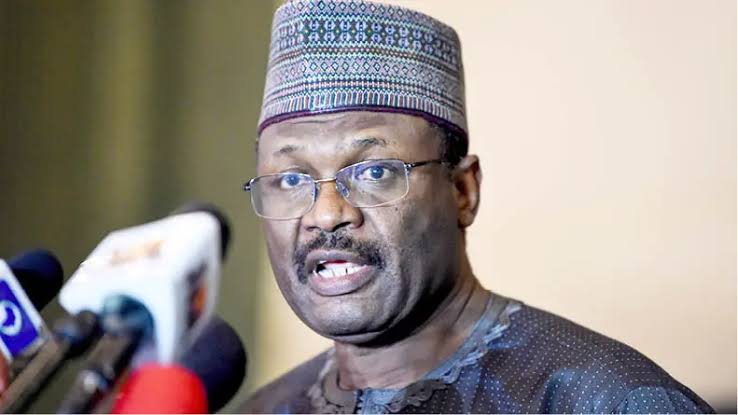THE Independent National Electoral Commission (INEC) has insisted that Nigeria’s 2023 presidential election will hold as planned on February 25.
INEC Chairman, Mahmood Yakubu made this known at a media briefing on Friday in Abuja, the Federal Capital Territory.
His assurances come a few hours before the presidential poll slated for Saturday, February 25, 2023.
“Generally speaking, the situation is calm in the country as far as our preparation is concerned,” Yakubu said.
According to him, there has been no incident of insecurity involving the personnel and materials deployed by the commission.
“Voter enthusiasm is high and so too is our determination to conduct credible elections. Tomorrow is election day,” he declared.
By his statement, the electoral chief ruled out any postponement which had consistently characterised Nigeria’s general elections since 2011 but 12am on Saturday is still a long time for any last-minute development.
Historically, INEC rescheduled the 2011, 2015 and 2019 general elections due to security, logistics and operational challenges.
2011
In 2011, INEC shifted the elections three times; the first, after voting had begun in some states on April 2, 2011. Then INEC Chairman, Attahiru Jega cited the late arrival of electoral materials in parts of the country for the postponements.
The electoral body further moved the presidential and National Assembly polls to April 9 and then to April 16; while the governorship and state Houses of Assembly election were shifted from April 23 to April 26.
Former Bayelsa State Governor and the then acting President, Goodluck Jonathan, who contested on the platform of the Peoples Democratic Party (PDP), was declared winner of the presidential election.
2015
The situation was not anyway different in 2015 as INEC postponed the polls six days before the earlier scheduled dates, citing insecurity. The electoral body shifted the Presidential and National Assembly polls from February 14 to March 28, 2015 while the Governorship and State Assemblies’ polls were moved to April 11, 2015.
Jega attributed the postponement to the insurgency in Nigeria’s troubled North-East zone which he said could affect the safety of election personnel, voters and materials.
Former military head of state, Muhammadu Buhari of the All Progressives Congress (APC) defeated the incumbent, then-President Goodluck Jonathan of the PDP to emerge winner of the keenly contested poll.
2019
A repeat played out four years ago as INEC shifted the 2019 Presidential and National Assembly Elections from February 16 to February 23, 2019 while it moved the Governorship/State House of Assembly/Federal Capital Territory Area Council elections to March 9, 2019 due to “logistics and operational plans”.
The incumbent, APC’s Buhari won the 2019 presidential election and secured another term of four years.
Voter turnout is expected to increase significantly in this year’s election. Already, 87,209,007 people have collected their Permanent Voter Cards (PVCs) representing 93.3% of the 93,469,008 total registered voters, according to INEC.
The contest for the election of Buhari’s successor has been described by analyst as a three-horse race between APC’s Bola Tinubu; PDP’s Atiku Abubakar; and Labour Party’s Peter Obi.







